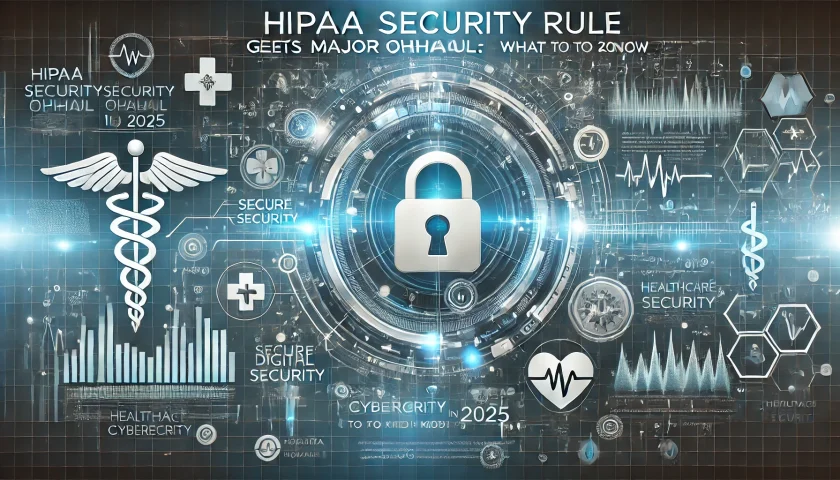
AI and Automation in Business 2025: Transform Your Operations
January 30, 2025HIPAA Security Rule 2025: Major Updates and Compliance Requirements
HIPAA Security Rule Gets Major Overhaul: What You Need to Know for 2025
After two decades of relative stability, the HIPAA Security Rule is undergoing its most significant transformation yet. On December 27, 2024, the HHS Office of Civil Rights (OCR) unveiled a Notice of Proposed Rulemaking that promises to revolutionize how healthcare organizations approach cybersecurity (https://www.hhs.gov/hipaa/for-professionals/security/hipaa-security-rule-nprm/factsheet/index.html). HIPAA Security Rule 2025.
The Evolution of Healthcare Cybersecurity
The original HIPAA Security Rule, while groundbreaking for its time, has struggled to keep pace with the rapidly evolving digital healthcare landscape. According to Morgan Lewis’s analysis, this marks the first substantial update in 11 years, addressing the critical need to enhance protection for electronic protected health information (ePHI) in today’s interconnected healthcare environment (https://www.morganlewis.com/pubs/2025/01/hhs-proposes-major-2025-update-to-hipaa-security-rule).
Core Changes in the 2025 Update
The most significant shift in the new proposal is the elimination of the distinction between “Addressable” and “Required” implementation specifications. As detailed by Foley & Lardner LLP, this change clarifies that all Security Rule specifications are mandatory, not optional (https://www.foley.com/insights/publications/2025/01/hhs-proposes-changes-strengthen-hipaa-security-rule/).
Technology and Infrastructure Requirements HIPAA Security Rule 2025
Under the new rule, healthcare organizations must develop comprehensive technology asset inventories and network maps. This fundamental change acknowledges a basic cybersecurity principle: you can’t protect what you can’t see. Organizations must now maintain detailed documentation of where ePHI resides, who has access to it, and how it flows through their systems, including third-party applications.
The proposed rule mandates several critical security controls that reflect current cybersecurity best practices. These include encryption of ePHI both at rest and in transit, implementation of multi-factor authentication, and regular security testing. Healthcare organizations must now conduct penetration testing annually and vulnerability scans every six months to identify potential security weaknesses before they can be exploited.
Recognizing the inevitability of cyber attacks, the new rule requires organizations to maintain documented incident response and disaster recovery plans. A particularly notable requirement is the ability to restore critical data within 72 hours of a loss, emphasizing the importance of operational resilience in modern healthcare operations.
The new rule significantly increases oversight requirements for business associates. Organizations must now obtain annual written verification that their business associates comply with the HIPAA Security Rule. This change reflects the growing recognition that third-party vendors often represent significant security risks.
As Kirkland & Ellis LLP notes, the proposed rule was published in the Federal Register on January 6, 2025, with a 60-day comment period ending March 7, 2025 (https://www.kirkland.com/publications/kirkland-alert/2025/01/proposed-changes-to-the-hipaa-security-rule). Organizations should use this time to assess their current cybersecurity programs and begin planning for these substantial changes.
Preparing for Compliance HIPAA Security Rule 2025
For organizations that have already adopted cybersecurity best practices, the main challenge will be administrative: updating policies, revising business associate agreements, and enhancing documentation procedures. However, organizations still working to achieve meaningful compliance with the existing Security Rule may need to invest significantly in both human and technical resources.
Essential Action Items:
- Conduct a gap analysis between current security measures and new requirements
- Develop a comprehensive implementation roadmap
- Begin budgeting for necessary technology and staffing resources
Looking Ahead
These changes represent a significant shift in healthcare cybersecurity regulation. As cyber threats continue to evolve, healthcare organizations must adapt their security practices accordingly. The new HIPAA Security Rule provides a clearer framework for achieving and maintaining robust cybersecurity protection in the healthcare sector.
The comment period until March 7, 2025, offers organizations a crucial opportunity to shape these regulations. Healthcare organizations should carefully consider how these changes will impact their operations and consider submitting comments to help refine the final rule.
For more information just like this, find more of my work at https://TrustITSec.com
If you like this article, check out last weeks article about AI automation for Small Business’s




